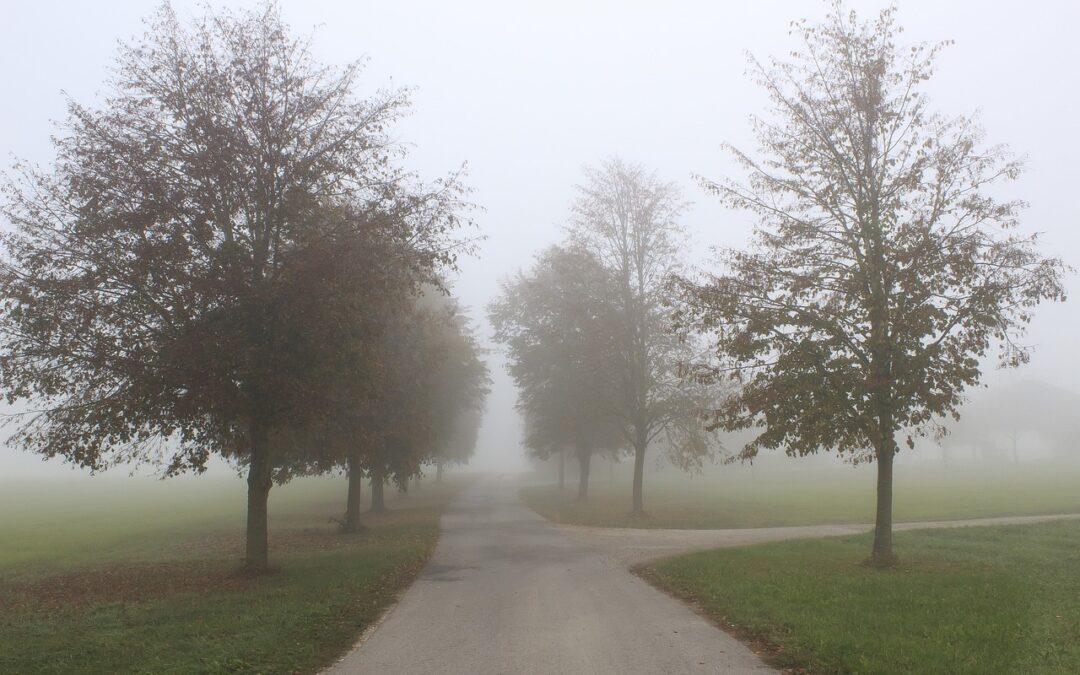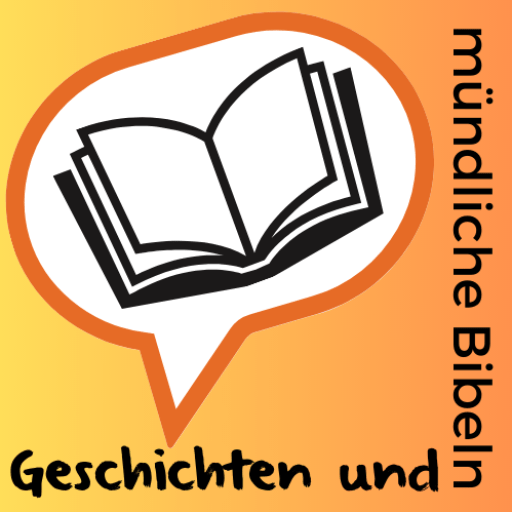
Conversion paths of Muslims
In his doctoral thesis Coming to Faith in Christ: Case studies of Muslims in Kenya Reinhold Strähler has described four fascinating ways how Muslims find Jesus (Dissertation for download). If you tell stories to Muslims, as in this case, then you also have a goal in mind. That's why I think it's important to think about how Muslims, for example, can find Jesus and which stories fit in with this.
I have quoted the four ways here.
1. intellectual path: Miriam's path
As the daughter of a highly educated and respected family in Iraq, all paths were open to Miriam. Her career path from university to an academic career was a given, just as Islam was a natural part of her life and defined her identity. During her school years, a religious campaign began in which Islam was emphasised more strongly and the entire Koran was covered in class. Her family had little contact with Christians. As an educated and cosmopolitan family, they did have an Arabic Bible at home, but Miriam found the language difficult and the content incomprehensible.
When Miriam was 24 years old, her family moved to Germany and a new phase in her life began. She was fascinated by the completely different society and the associated freedoms and opportunities. The western image of women particularly appealed to her. She continued her studies and moved away from home, which is actually unthinkable for an unmarried woman from the Orient. But experiencing the great freedoms also showed her the challenges involved. It was not easy to keep her head above water with various jobs. The advance of the ‘Islamic State’ in her home country was a great burden for her. She needed people with whom she could talk about her longing for peace.
A German acquaintance criticised Muhammad, which made Miriam angry and even led her to defend suicide bombers. She got to know Korean Christians in her student hall of residence and attended their church services for eight years. She understood little of the content, as the topics discussed there were not geared towards people with a Muslim background. In an Arabic Bible that she received, she felt lost without guidance. She was bothered by the language, but read it again and again. At the time, she was watching Christian TV programmes with their religious and comparative religious debates. But at some point she had enough of it because her faith was always being attacked and ridiculed.
Miriam was looking for God, but didn't know where to look or who to pray to. She read a lot and followed many debates. At some point, she was so exhausted that she cried out to Jesus and asked for a sign. That night she had a dream in which she was on a sinking ship, but not sinking herself. She woke up terrified and deeply comforted at the same time. She prayed and thanked Jesus for saving her. After this dramatic experience, she received a Bible in a more comprehensible Arabic translation and began to understand more and more about the Christian faith. Through a German pastor, she came into contact with an Arabic church and was baptised there in 2017
2. Way of changing attitudes: Abdi's story
Abdi wuchs in einer dörflichen Umgebung in Kenia auf, die stark vom Islam geprägt ist und wo Christen als verachtete Minderheit gelten. Als Kind und Jugendlicher hatte er deshalb keine klare Vorstellung über den christlichen Glauben. »Wir kannten nur die eine Seite der Medaille«, erklärt er zu seiner Situation damals. Nach Beendigung der Sekundarstufe zog Abdi nach Nairobi, da seine Schwester schon in der Hauptstadt lebte. Durch sie kam er in Kontakt mit ausländischen Christen. Abdi war gerne mit ihnen zusammen, beim gemeinsamen Fußballspiel, bei Mahlzeiten und den Gesprächen über religiöse Themen. Nach und nach realisierte Abdi, dass die Bibel wertvolle Wahrheiten enthält, und er begann, diesen zu vertrauen.
Abdi had been brought up as a strict Muslim. He was not always enthusiastic about the religious rites, but he liked the communal aspect of Islam. For his own people, the Christian faith did not exist; they saw Christians as lost people. But when Abdi met such people in Nairobi, his attitude towards Christians changed dramatically. The love he experienced from them overwhelmed him. ‘The love that these Christians have for each other and even for members of other religions is what sparked my interest.’ This love made him realise that there was ‘another side to the coin’. For about two years, Abdi was in contact with these Christians, observed their lives and learnt a lot from them about the teachings of the Bible. Then he was ready to decide to follow Jesus Christ himself.
3. Mystical path: Vahid's story
Vahid is an electrical engineer and - like his wife Elham - comes from a wealthy middle-class family in Iran. Belief in God played no role for him. Rather, he had a critical attitude towards Islamic demands. Two and a half weeks after his wedding in 2013, his father died. As a result, Vahid became depressed and afraid of death, and his appetite for life dwindled. He fell into a deep crisis and felt like he was sinking into a swamp. In October 2016, an Iranian friend who lives in the USA visited the couple. She is a Christian. Vahid took her up on her offer to pray for him. During the prayer, Vahid experienced a sudden sense of relief and felt healed afterwards.
This profound emotional experience led to a cognitive examination of the Christian faith. The couple began to read the Bible together and search for information on the Internet. During a visit to France, they attended a Christian church service for the first time in their lives. On their return to Iran in March 2017, they came across a television program on the Christian channel Sat-7. At the end of the program, the speaker encouraged the listeners to entrust their lives to Jesus Christ and turn to him in faith. The couple did this with a prayer. During another visit to Germany in June 2017, they were baptized in a Persian church.
4 The solution-seeking path: Julia's story
Julia grew up in Iran in a liberal, cosmopolitan family. Her father only read the Koran at the request of his devout mother, and stopped reading it after her death. Julia's parents had a happy and rather unusual marriage before the Islamic revolution. Her mother was westernized in her dress and behavior. Julia's father commuted back and forth between Iran and the Arabian Peninsula as part of his work. He had American work colleagues there, some of whom were Christians. He learnt a lot about the Christian faith from them and eventually described himself as a Christian, but without ever officially converting to the Christian faith and being baptized. At home, he told his family a lot about what he had learnt about the Christian faith. Julia grew up with the example of her freedom-loving mother and free-thinking father and adopted their attitude, including their love of the Christian faith.
After graduating, Julia also went to work on the Arabian Peninsula. Three years later, she married out of necessity. Her father was in debt at the time and an acquaintance from Iran offered him a large bride wealth if Julia would marry his son. Julia agreed to the marriage for her father's sake. It soon became apparent that her husband was violent. He began to beat Julia. His family had a very conservative and restrictive attitude towards women's rights and so Julia was forced to wear a veil, even in the presence of her brothers-in-law, although this is actually unusual in Islam. Her husband became more and more suspicious and increasingly harassed his wife. Life became a living hell for her. The children, who had been born in the meantime, were also beaten by their father for the slightest neglect. At the same time, her husband had affairs with other women.
Her husband's religious fanaticism and his violence caused Julia to hate Islam. She began to search for Christian content on the internet. She was particularly fascinated by Jesus‘ miracles, his love for his enemies and his humility, such as the way he washed his disciples’ feet. She longed for an alternative to the narrowness of her life, to the violence and hypocrisy of people who pretended to be pious but behaved completely differently. Gradually, she became convinced that the Christian faith was the right path for her. She went to the family court twice, but only experienced rejection there. So Julia made plans to escape.
The opportunity arose when she visited her sister, who lived in Germany. After some pleading, her husband agreed to a visit. Once in Germany, Julia took the opportunity to go to the police with her children and apply for asylum. Her husband was furious, but as Julia had not told her sister, she was unable to help find Julia. While she was still in the initial reception centre in Heidelberg, Julia sought contact with a Christian church. She was later baptised in an Arabic-speaking church in Stuttgart.
Which paths do you know? Do you know any other ways? What could such paths look like for secular Germans? Why don't you write down different spiritual paths and send them to me via the Contact. Under Training you will find all the information you need to register for a training course

Recent Comments